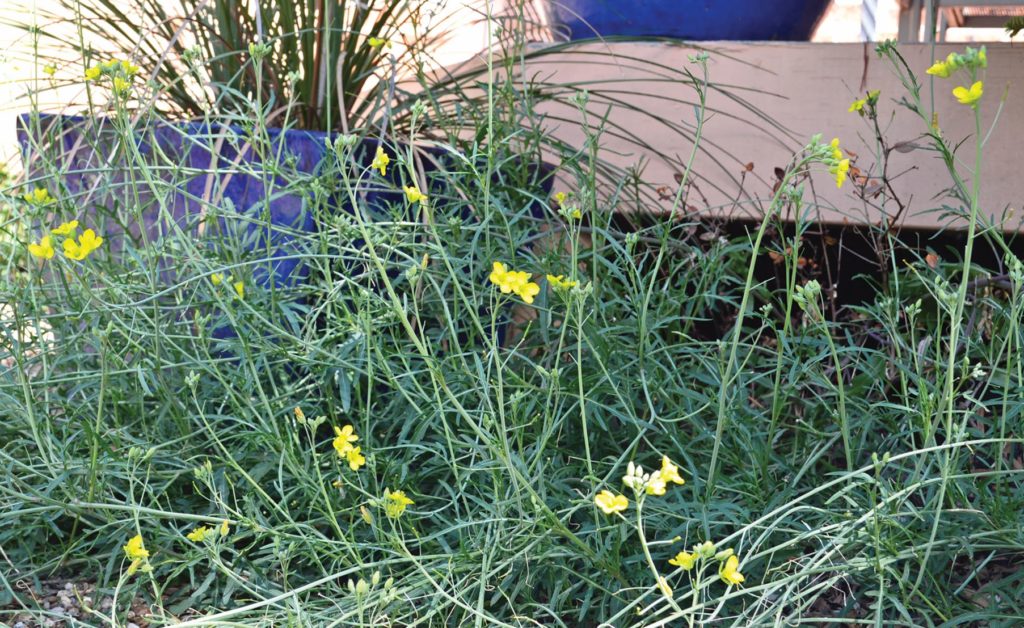Wild rocket (Diplotaxis tenuifolia) is a must-have in any garden, not least because of its versatility.
This delicious perennial leafy green grows well throughout the year, including summer if it’s established beforehand. It tastes similar although stronger in flavour than conventional garden rocket (Eruca vesicaria), but doesn’t become bitter when the leaves mature, giving it an extended harvest.
The leaves are full of nutrition, such as vitamins C and K, as well as zeaxanthin and lutein, which have been shown to assist with eye and vision health. The petite yellow flowers, also edible, are popular with beneficials and bees. Fine seed pods develop soon after, which self-seed around the garden. Simply remove any unwanted plants.
Wild rocket can be used fresh, steamed or lightly stir fried. It makes a delicious pesto or addition to a prosciutto and freshly shaved parmesan pizza.
Wild rocket is a useful companion plant in the garden due to its pungent foliage, which deters and confuses pests. It’s also an excellent bio-fumigant crop, making it useful in veg garden crop rotation systems.

In the garden
- After such a dry summer, you will likely need to remove and mulch some dead plants. If you are concerned about fire risk, the mulch can be buried as part of a trench composting system or stored in sealed containers until the weather is more favourable.
- Water trees if generous rains are absent, to give them a chance to recover from summer before the cold weather sets in. You may need to de-compact the soil beforehand to encourage absorption. Focus the water towards the drip line of the tree, where it will be most effective.
- Planting new seedlings? Dehydrated soils? A handy soil conditioner and natural wetting agent can be made from agar-agar (derived from seaweed). Make sure the soil is moist before applying.
- Seedlings of cool season crops (e.g. brassicas) can be planted early autumn, giving them time to establish while the soil is still warm. You can also sow seed of faster growing leafy greens (e.g. rocket, lettuce, endive, Asian greens), either direct or into punnets of seed raising mix. Peas can be sown direct where they are to grow (protect from snails).
Fiery happenings
In response to this summer’s devastating bushfires, David Holmgren, co-originator of the permaculture concept, has written a new piece outlining practical solutions for mitigating bushfire risk whilst at the same time reducing greenhouse gases, and building household and community-level resilience: holmgren.com.au/bushfire-resilient-land-and-climate-care/
David has also made the two chapters about bushfire in his book RetroSuburbia, available as a free and sharable download: files.holmgren.com.au/downloads/RetroSuburbia_Bushfire_Resilience_Extract.pdf
Canberra City Farm workshops
Over the coming months, Canberra City Farm in Fyshwick will be hosting a series of free workshops for members to learn more about growing their own edibles.
These workshops include Getting Started, Preparing for your Autumn/Winter Vegetables, Preparing for your Spring/Summer Vegetables, Soils, and Garden Pests and Diseases.
For more, including membership, visit ccfarm.org.au
With horticulturist Tracey Bool, http://www.traceyboolgardenwriter.com/
For more:








